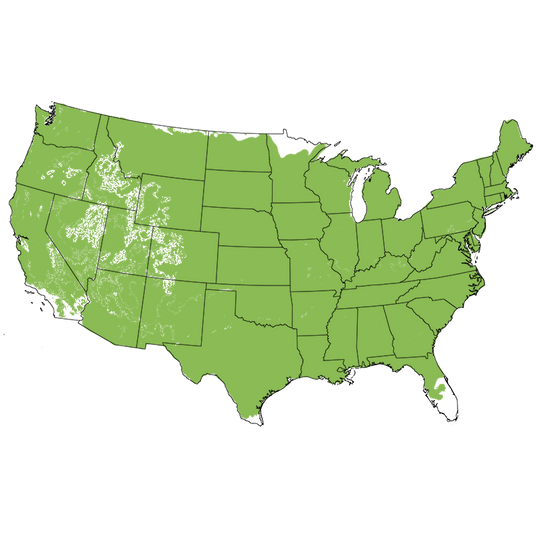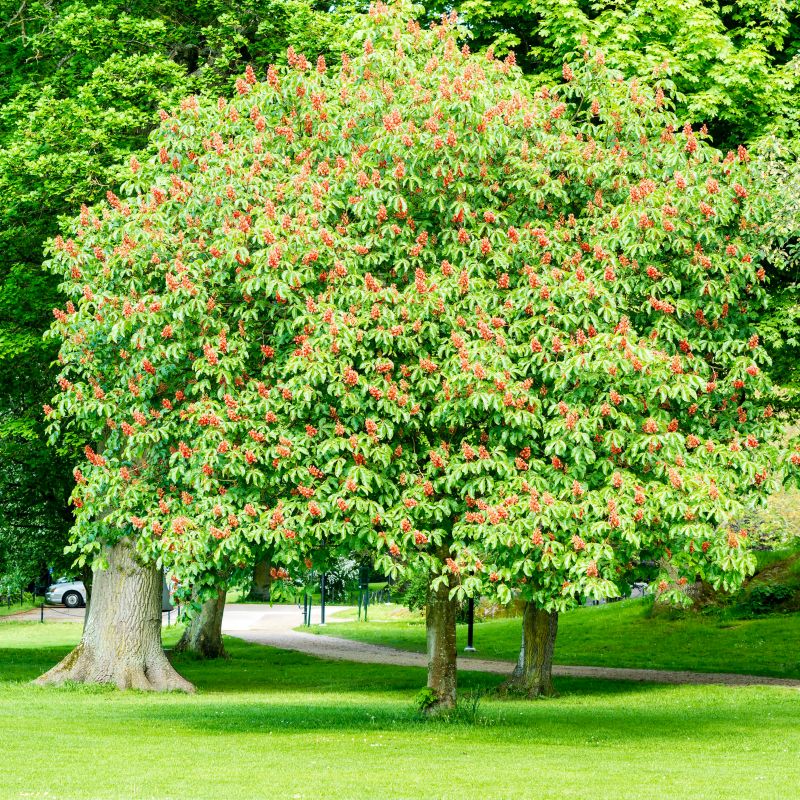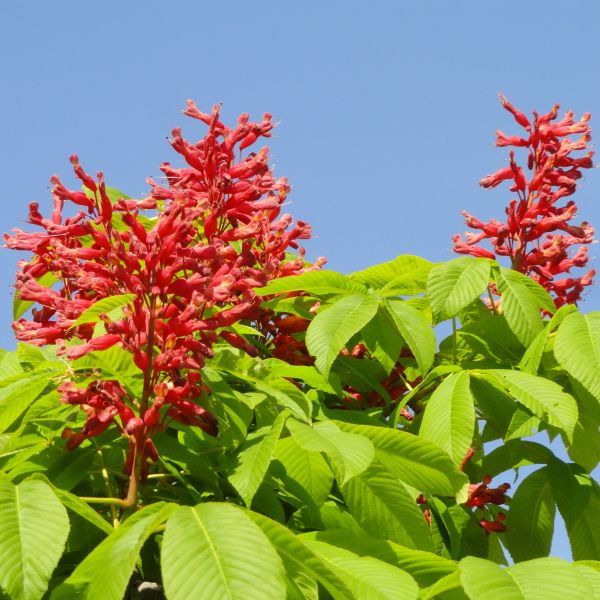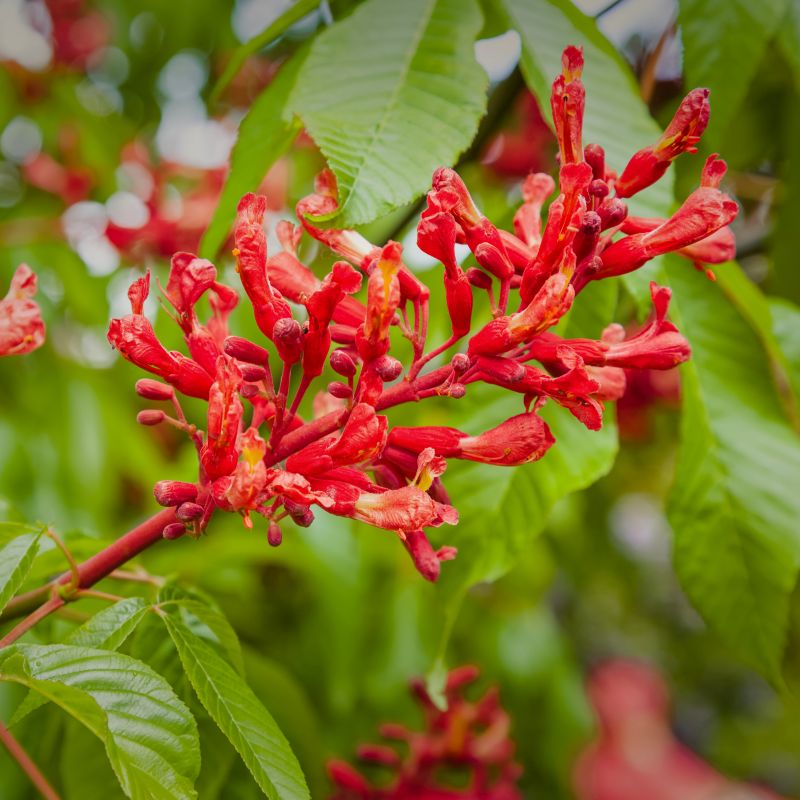Red Buckeye Tree
Aesculus pavia
Planting & Care
Planting & Care
Delivery and Shipping
Delivery and Shipping
Preorder Shipping Schedule
We ship your plants when it's safe to transport them to your zone. Dates are estimated and subject to weather delays.
| Zone 3-4 | Week of March 30th |
| Zone 5 | Week of March 16th |
| Zone 6-12 | Week of March 2nd |
Shipping Rates
Ships in 3-4 business days • Tracking provided • Weather protected
| Under $50 | $9.99 |
| $50 - $99.99 | $14.99 |
| $100 - $149.99 | $16.99 |
| $150 - $198.99 | $24.99 |
| $199+ | FREE |
✓ Zone-specific timing • ✓ Professional packaging • ✓ Health guarantee

Plant Sentry™ Protected
Your order is protected by our compliance system that:
- Prevents restricted plants from shipping to your state
- Ensures plants meet your state's agricultural requirements
- Protects gardens from invasive pests and diseases
Magnificent Spring Color Native Red Buckeye Tree
- Dramatic Spring Blooms
- Vibrant Spring Color
- Perfect for Smaller Landscapes
- Very Distinctive Leaves
- Supports Butterflies
- Hardy, Easy Care Native Tree
- Grows in Sun or Partial Shade
- The Good Luck Tree
If you want to make an absolutely stupendous presentation in early spring, consider this wonderful native tree. One of the first plants to wake up in spring, Red Buckeye Tree (Aesculus pavia) creates a splendid accent in the landscape.
This beautiful native shrub or small tree is also known as Firecracker Plant and Scarlet Buckeye. You may have seen the showy blooms and fallen in love.
And no wonder! The tubular flowers are vivid scarlet and can grow to 9 inches long. These lavish carmine blooms last several weeks and attract ruby-throated hummingbirds and butterflies. It is not uncommon for the Red Buckeye to begin blooming in the second or third year after planting.
Plant it in the sun for a full, lusher profile. In shade, the plant opens up and becomes airier and a bit shrubbier.
It seems to thrive on neglect and will readily bloom. This amazing flowering tree grows in almost any soil type and is virtually disease and pest-free.
This is a native deciduous tree and one of the first plants to leaf out in the spring. Even the highly textured leaves are lovely. They almost appear to be quilted!
Emerging burgundy-red in spring, they'll offset the blooms beautifully. Turning a lustrous dark green, the leaves are large and droop down in a charming way. They'll provide plenty of interest throughout the growing season.
As the flowers finish, see if you can find a few of the unique, shiny brown seeds. You'll have to hunt for them. Put one in your pocket for good luck!
How to Use Red Buckeye in the Landscape
Because it loses its leaves early in the fall, Red Buckeye may be best used as a really special accent tucked along a garden path. Create a "Garden Destination" in your landscape and use this as a springtime focal point. It is especially pretty when underplanted with early spring wildflowers.
It has a coarse-textured and open structure. In fall, allow it to hide a bit behind showier, fall-colored trees like Flowering Dogwoods or Maples.
You can also use this tree as a pretty background tree. The tree's bold canopy, beautiful bright-red blooms, and light, flaky bark can make a great natural hedge when planted at 8 to 10 feet on center.
As with most Aesculus varieties, the Red Buckeye begins to go dormant early in the fall and it is not uncommon for the leaves to begin to turn color in the late summer or early fall. Place Burning Bushes, Red Twigged Dogwood, and evergreen shrubs in front for a wonderful display that works all year.
#ProPlantTips for Care
If possible, give it moist, well-drained soil, but it can adapt to a wide range of soil types. The tree does best when grown in full sun but can be grown in some shade in warmer regions. Plan to water in the early morning, so the drying power of the morning sun can dry the foliage. Be careful not to overwater this tree.
In the wild, the Red Buckeye is often seen as a multi-trunk tree. But in the landscape, Buckeye trees are easily trained to a single-trunk trees when young. Prune to shape after flowering, but major pruning should be done when the tree is dormant.
It is moderately drought-tolerant. In full sun locations, the tree benefits from a good mulch layer 3 to 4 inches deep. Extend this out to 3 feet beyond the canopy. This will help to keep the tree's roots cool in the heat of the summer. In the hotter, drier areas of Zone 8, planting in a little afternoon shade will protect the tree from sunburn on the trunk.
Bold red flowers, beautiful palmately compound, large leaves, and a lot of appeal for birds and butterflies make this special tree a standout in a nature lover garden. Order this rare plant today at NatureHills.com!
-
Botanical Name
-
Growing Zones
-
Height
-
Width
-
Sunlight
-
Growth RateSlow
-
Flower Color
-
Leaf Color
-
Fall Color
-
Bloom PeriodLate Spring
-
Does Not Ship ToAK, HI, ID, MT







